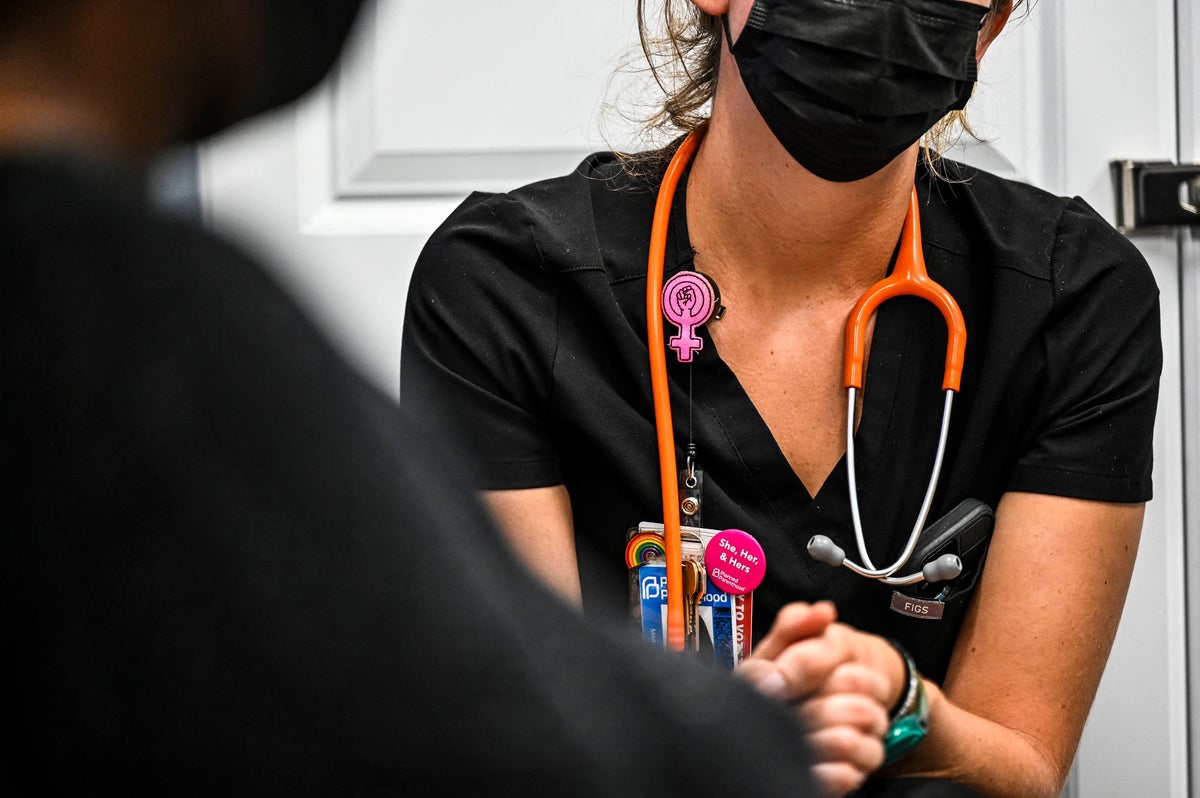
A child survivor of incest was reportedly denied an abortion in Florida following the state’s law banning abortion care at 15 weeks of pregnancy, a provision that does not make an exception for instances of rape or incest.
The revelation from the state’s Planned Parenthood chapter, first reported by BuzzFeed News, follows a wave of anti-abortion laws that have radically redrawn the map for abortion care across the US after the constitutional right to abortion care was revoked by the US Supreme Court.
At least 13 states have effectively outlawed the procedure.
The survivor was forced to travel to another state to receive care, according to Planned Parenthood of South, East, and North Florida.
Laura Goodhue, the chapter’s vice president of public policy, did not disclose the age of the patient or where they traveled but said the patient was a middle school student who received an abortion “at least two, three states away,” according to BuzzFeed News.
Florida is bordered by Alabama, where abortions are outlawed at any stage in pregnancy, and Georgia, where abortions are banned at roughly six weeks.
Alabama’s law makes no exceptions for pregnancies from rape or incest, and Georgia’s law allows the exceptions only if there is an accompanying police report.
Providers in Florida have seen an influx of young people and survivors of sexual and domestic violence seeking abortion care in the state, according to Alexandra Mandado, president of Planned Parenthood for the region, who addressed the impacts of the state’s anti-abortion law during a virtual briefing on 12 October.
“We are seeing this restriction have profound and terrible effects for some families in the most desperate of situations,” added Florida obstetrician-gynecologist Dr Shelly Tien. “To not be able to provide that service because of the restriction for a patient in such a terrible and violent situation is horrible.”
A state judge in Florida briefly blocked the state’s restrictions, which were signed into law by Republican Governor Ron DeSantis and challenged in state courts prior to the Supreme Court’s decision to overturn Roe v Wade and Planned Parenthood v Casey on 24 June.
“People who need abortions after 15 weeks are often the ones in the most dire situations – more likely to be living in poverty, trying to escape violence or abuse, and they’re more likely to be facing multiple barriers to care,” Dr Tien said during the briefing.
Ms Mandado said providers are also caring for patients “who did not know that they were past 15 weeks of pregnancy,” including one pregnant woman who was diagnosed with symptoms like fatigue and nausea but dismissed by doctors as merely enduring the effects of long Covid-19.
The patient took a pregnancy test and learned she was unexpectedly pregnant. After arriving at a Planned Parenthood clinic, the patient was told that “she was past the limit of our state’s abortion ban,” according to Ms Mandado.
The survivor of incest was accompanied by family members, with travel assistance provided by Planned Parenthood, to receive care in another state.
“The cruelty of forcing a very young person, who has already survived a horrible case of violence, to give birth, it just takes away their rights to bodily autonomy, and it is really turning a blind eye to what is happening in our society,” Ms Goodhue told BuzzFeed News.
The case mirrors the abortion of a 10-year-old rape survivor in Ohio who was forced to travel to Indiana to receive care in that state in the aftermath of Ohio’s anti-abortion law.
Indiana lawmakers subsequently passed a law banning most abortions in that state, the first to draft a new anti-abortion law in the wake of the Supreme Court’s decision.
A judge later blocked the law, arguing that that the state’s constitution does provide a right to bodily autonomy, and that a ban unconstitutionally burdens Indiana residents’ rights “by making that autonomy largely contingent upon first experiencing extreme sexual violence or significant loss of physical health or death.”
Indiana’s Supreme Court agreed to pause the law on 12 October pending a hearing in January.







